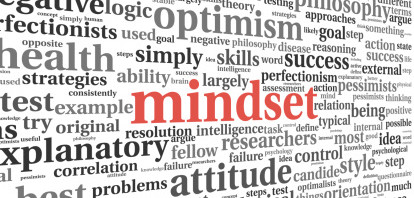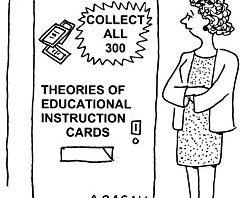Do you ever wonder why some very smart people don’t live up to their potential? Or maybe you feel that you need to unlock your own potential? It may come down to mindset or mental attitude, which can be more important for success than IQ.
Frequently Asked Questions
What are your qualifications?
I am a master certified coach (MCC). I earned my certification—considered the gold standard within the industry—through the International Coach Federation (ICF), the world’s largest organization dedicated to the coaching profession. Master certified coaches have counseled over 100 clients, accumulating over 2500 total coaching hours; passed a rigorous oral and written exam; and keep their credential current with a minimum of 40 continuing education hours every three years. In addition to training and credentialing, I earned a master’s degree in organizational development, with an emphasis in evidence-based coaching, from Fielding Graduate University.
What is your experience?
I have over a decade of coaching experience, and my clients report a more effective approach to leadership and a more satisfying and meaningful career and life path. I have worked with Fortune 500 executives and teams, senior managers, entrepreneurs and small business owners in a number of fields—including pharmaceuticals, health care, higher education, manufacturing, engineering, heavy construction, telecommunications, finance, high-tech, aerospace technologies, government, and non-profit.
What is your style and approach?
I have developed an exploratory and action-oriented coaching process focused on delivering immediate, measurable impact on my clients’ organizations while aligning with their values and motivations. I inspire business leaders to derive a deeper sense of purpose from work and life and become effective, collaborative, and inspiring agents of change. I engage clients quickly by developing trust based on empathy and humor. My goal is to push clients to accomplish more than they previously thought possible.
What kind of results can they expect from working with you?
In the first phase of coaching, I work with clients to map out their goals and target outcomes. With the client’s approval, I bring in supervising executives as needed to provide input, act as on-the-ground sponsors, and offer feedback on key touchpoints throughout the coaching engagement. At the close of the engagement, I review client goals and measure progress. All of their clients make significant progress on their goals and report a high return on their investment of time and money.
What is your business background?
Prior to becoming a coach in 2001, I spent 15 rewarding years as a broadcasting industry executive, developing talent, spearheading change, and consistently delivering record profits. I was recognized for out-performing more than eighty other broadcast properties across a seven-state region while successfully leading a complex series of mergers and acquisitions.
What exactly is coaching?
The ICF defines coaching as partnering with clients in a thought-provoking and creative process that inspires them to maximize their personal and professional potential. As coaches, we honor the client as the expert in his or her life and work and believe that every client is creative, resourceful, and whole. The coach's responsibility is to:
- Discover, clarify, and align with the client’s goals;
- Encourage client self-discovery;
- Elicit client-generated solutions and strategies; and
- Hold the client responsible and accountable.
Topical Searches
Tags
adaptive capacity
authenticity
behavior
change
Coaching
coaching case study
communication
conflict
conflict management
Creativity
Crisis Management
decision-making
Development
effective leadership
emotion
Empathy
Employee Engagement
Executive
executive coaching
executive presence
feedback
growth
Improvement
Leadership
Leadership Coaching
leadership skills
management
mood
Motivation
multipliers
nonverbal communication
Organization
organizational culture
peer coaching
Performance
psychology
purpose
Resilient Leadership
self reflection
social signals
team building
teamwork
Trust
values
vulnerability

















